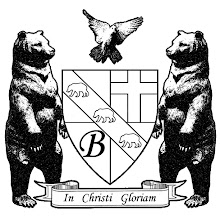 December 8 is the Feast of the Immaculate Conception. Contrary to a common misunderstanding, the Immaculate Conception refers to the conception of Mary (the mother of Jesus) in her mother's womb and not to the Incarnation of Jesus in Mary's womb.
December 8 is the Feast of the Immaculate Conception. Contrary to a common misunderstanding, the Immaculate Conception refers to the conception of Mary (the mother of Jesus) in her mother's womb and not to the Incarnation of Jesus in Mary's womb.Though belief in Mary's Immaculate Conception had been widely held since the early centuries of the Church, it was only defined dogmatically by Pope Pius IX in 1854 in the document Ineffabilis Deus, in which he wrote:
"The most Blessed Virgin Mary was, from the first moment of her conception, by a singular grace and privilege of almighty God and by virtue of the merits of Jesus Christ, Saviour of the human race, preserved immune from all stain of original sin."
So, basically, Mary was conceived in the normal, sexual way (unlike Jesus), but God protected her from the stain of original sin that has plagued the rest of us ever since Adam and Eve first turned their backs on God in the Garden of Eden.
A friend once told me that one of his major problems with Catholicism was the dogma of the Immaculate Conception and the idea that Mary was sinless. If that were true, he argued, then Mary wouldn't need to be saved, which doesn't square with Scripture, where, in her Magnificat, Mary calls God "my Savior" (Luke 1:47). At the time, I didn't know enough about Catholicism to know that Mary's Immaculate Conception and sinlessness did not imply that she did not need to be saved. Jesus is the Savior of all, including Mary. Mary did not remain sinless by her own power. Rather, Christ saved her from sin at the moment of her conception and filled her with God's grace. Scott Hahn explains this idea in his book Hail, Holy Queen: The Mother of God in the Word of God when he writes, "The immaculate conception is a divine act of preservation -- a work of God, and not a work of Mary herself." He continues:
"The immaculate conception, then, was a fruit of the redemption applied to Mary by way of anticipation; for the redemption was always in view for the eternal God, Who is not bound by time as we are. Thus, Christ's redemption applies to you and me, though we could not be there at Calvary -- and it applied to Mary at the moment of her creation, though Christ's saving death was still years away. Her redemption was an act of preservation, while for all others it is an act of deliverance.
"If Mary was sinless, did she really need Jesus to redeem her? Yes, she did. Her singular preservation could not have taken place without the redemption won for all men by Jesus. Jesus is God, and so He is both our creator and our redeemer. In the very act of creating Mary, he redeemed her from any limitations of human nature or susceptibility to sin. She is a creature, but she is His mother, and He has perfectly fulfilled the commandment to honor her. He honored her in a way that is singularly beautiful."
For an extensive treatment of the Immaculate Conception, check out this entry in the old Catholic Encyclopedia.


No comments:
Post a Comment